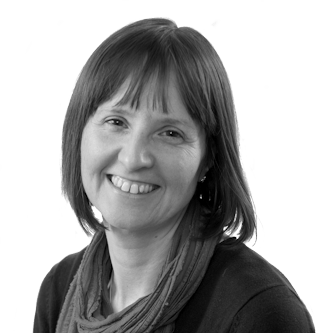Celebrating International Women’s Day – Q&A with Dr Charlotte Evans


Dr Charlotte Evans is an Associate Professor in Nutritional Epidemiology and Public Health Nutrition at the University of Leeds, UK, with more than 20 years’ experience in researching dietary behaviour and food environments. She is dedicated to improving the quality of children’s and adolescent’s diets particularly for those on the poorest diets.
Her research focuses on making the healthier choice the easier choice with experience in a range of food environments including schools, hospitals, fast food, and nutrition information in the media.
Another key area of her research is the evaluations of programmes and policies to improve diet quality such as increasing fruit and vegetable consumption and decreasing free sugars.
She has more than 100 publications including original research papers, a recent book on Transforming Food Environments, book chapters, a special issue on adolescent diet and conference abstracts. She has also presented her work internationally and has regularly featured on television and the radio communicating hers and others work in diet behaviour.
In 2016, she was awarded the prestigious Elsie Widdowson Medal for contributions to Public Health Nutrition by the UK Nutrition Society.
How did you get into your field of study?
I started out as a dietitian in 1991 but quickly realised I was much more interested in prevention rather than cure and moved to public health nutrition research. I had been working in research for a few years and had 2 children before I started my PhD at the university of leeds at age 40 – it’s never too late to follow your passion!
What’s it like being a woman in your field of study?
Working as a female nutritional scientist, there are so many amazing female leaders to inspire those coming up behind. Having female mentors encouraging me and giving me the confidence to have a go has made it much easier to progress to senior positions.
Can you share any experiences of inequity you have had and how they were overcome?
I have had very few experiences of inequity in my working life and have made it one of my goals to work in professional environments that constantly strive for equity. However, some of the most challenging years came in my 50s when going through the menopause. Problems with sleep and anxiety can affect your work in so many ways and there is a worry that these issues won’t be taken seriously enough by those who haven’t had to face them. I aim to encourage a more positive discourse around these issues to help others who may be worried about speaking up.
What do you think is key to tackling equity in either your field of study or beyond?
The key to a diverse and thriving research environment is to ensure that any panels or committees always include a good balance of male and female representation. This includes interviews for staff and students and anywhere where decisions are being made. My biggest concern is the difference in the amount of research funding going to male and female nutritional scientists. I am in favour of funding applications with minimal (or separate) demographic information to ensure minimum influence of unconscious bias. This can only happen if we keep striving for an equitable research system.
Synopsis of journal
Dr Charlotte Evans is the Editor-in-Chief of Public Health Nutrition, which is an Open Access journal published by Cambridge University Press on behalf of The Nutrition Society focusing on the promotion of good health through nutrition and the primary prevention of nutrition related illness in the population. Read more about the journal here.






